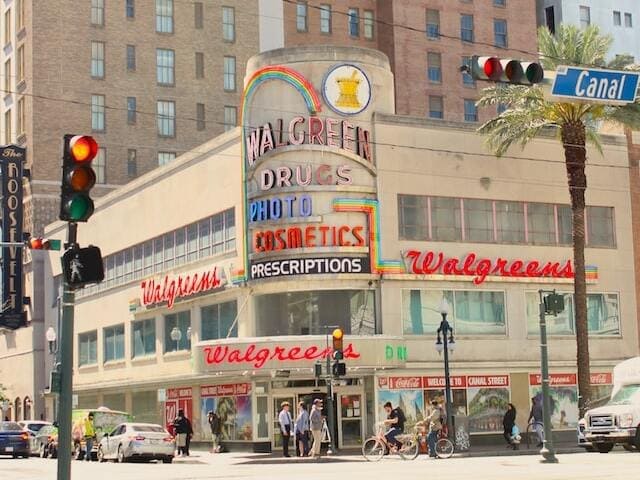Key figures of the pharmaceutical sector in 2024
The pharmaceutical sector for the French territory has 2.9% market share in 2024, with a turnover of 62.1 billion euros that same year. A large half of the turnover is achieved in exports, i.e. more than 50%.
The sector also has more than 135,000 people in France.
France's innovation capacity in 2024 is 9.4% in terms of drug production. It is a question of finding solutions to strengthen the country's production capacities, which shows that France wants to continue to develop the entire sector to make it more competitive.
PESTEL analysis
Politics
At the political level, the pharmaceutical sector is constantly undergoing profound changes, as regulations are constantly evolving. Whether it's drug prices or anything related to reimbursements, the political side has a significant impact on the entire industry. The controversy over generic drugs continues to this day, with successive governments actively looking for solutions to reduce healthcare costs overall. In the long term, companies in the sector can experience profitability problems.
In addition, the pharmaceutical industry is also and above all a sector where research appears to be particularly important, and millions of euros are spent each year in this field.
Still related to politics, the main objective of the free trade treaties is to make it easier for the entire industry to access other countries, even if there are still challenges to be met in this area.
Economic
We talked earlier about the importance of research and development, especially in a sector like the pharmaceutical industry, which is constantly evolving. Unsurprisingly, this is a particularly expensive field of activity, solutions to put drugs on the market are expensive and require time and very rigorous controls. It is important to know that many drugs are manufactured every year but that many do not appear to be profitable.
In the main figures above, we also highlighted the fact that for France, exports were very important. Indeed, more than 50% of global turnover will come from these exports, which puts additional pressure on companies, especially since demand is constantly evolving, not to mention regulations which are also in perpetual motion.
Over time, emerging countries represent an interesting opportunity for the pharmaceutical sector. The population is aging, the number of diseases tends to increase, which makes it possible to gain additional market share, even if it is sometimes complex to frame the problems related to logistics and the more legal field.
Socioculturel
The pharmaceutical industry is affected by the aging population in developed countries. This ageing has resulted in a higher demand for medicines, not to mention an increase in viruses and diseases for several years.
Today, and for the past few years, consumers are more concerned about their health and well-being, which will increase the demand for products such as food supplements. Companies want to strengthen their performance and competitiveness in areas where demand is greatest.
However, one of the main differences with other fields is that the pharmaceutical sector is much more closely monitored, especially in terms of safety but also in terms of ethics. There have been many scandals for several decades, and today, with the net and especially with social networks, these scandals quickly go viral, impacting at the same time the reputation of the industries involved, and drastically reducing their sales.
Innovating in this area is certainly important, because this is how research can move forward effectively, but many consumers remain vigilant when a new drug comes to market. The pharmaceutical industry is one of the sectors where information is most important, consumers, as well as the various partners, need maximum transparency before they can place any trust.
Technological
This sector is highly dependent on new technologies, as this creates radical opportunities in the discovery of treatments for previously intractable diseases. However, these technologies are more expensive, especially as artificial intelligence is increasingly used.
Medical treatments are more personalized, ever closer to the patient's needs, to gain in efficiency and relevance.
Today, teleconsultations are also developing, which have increased especially since the outbreak of the health crisis. "Connected health" is also developing with many mobile applications, which are profoundly changing the entire sector, making it more dynamic and above all more modern.
Ecological
The ecological issue appears to be increasingly important, for consumers but also for companies, which are under very strong pressure at the government level. The pharmaceutical industry can be very polluting in some cases, so regulations are becoming stricter. The waters are polluted, and climate change can lead to new viruses and diseases. Since the outbreak of Covid 19, the various companies in the sector have been looking for ever more effective ways to fight another potential epidemic.
Finally, pharmacies recover unused medicines, to limit waste and waste.
Legal
As we said above, the regulations are stricter, pharmacy is probably the most regulated industry in the world. Whether in the field of research, in the field of promoting a new drug on the market, in environmental protection or in pricing policy, the laws are very complex, and the acts are highly controlled.
In the various research, patents and laws concerning the protection of individual property are also mentioned. At the legal level, counterfeiting also comes into play, which remains a real problem today, despite a fierce struggle. These counterfeits are a threat to both the industry and consumer safety.
Conclusion
For many years, the pharmaceutical industry has been in perpetual motion. Between advances in artificial intelligence and new technologies and regulations that are ever more stringent, companies in the sector have multiple challenges to overcome, and this will only grow in the years to come. Many demographic and economic factors bring opportunities to this field of activity, but the pharmaceutical industry continues to need financial support to commercialize ever more personalized and effective treatments in the long term.
https://www.lemonde.fr/les-decodeurs/article/2020/11/26/big-pharma-que-pesent-les-grands-acteurs-de-l-industrie-du-medicament-et-des-vaccins_6061237_4355770.html#:~:text=Le%20marché%20pharmaceutique%2C%20qui%20se,elles%20seules%20800%20000%20personnes
https://www.leem.org/presse/chiffres-cles-de-l-industrie-pharmaceutique-le-leem-publie-la-nouvelle-edition-de-son-bilan












